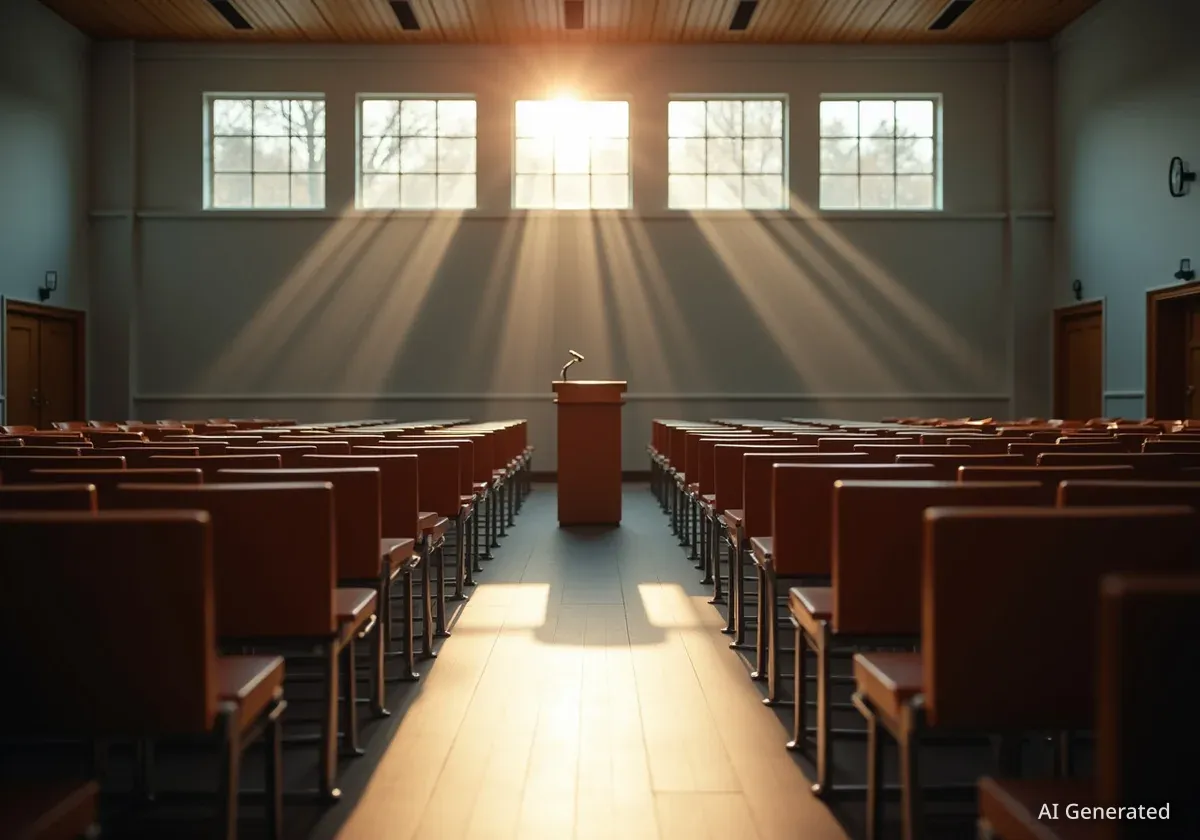An internal committee at Texas A&M University has unanimously ruled that the institution was wrong to fire a senior lecturer earlier this year. The decision follows a high-profile controversy involving a classroom lesson on gender identity that drew criticism from state political leaders.
The faculty committee concluded that the university failed to follow proper procedures and did not provide sufficient cause for the termination of Dr. Melissa McCoul, an English lecturer with over a decade of experience at the university. The recommendation is now with the interim president for a final decision.
Key Takeaways
- A Texas A&M faculty committee unanimously found the dismissal of Dr. Melissa McCoul was not justified.
- The firing occurred after a video of a children's literature lesson on gender identity sparked political backlash.
- The committee's recommendation is non-binding and awaits a final decision from the interim university president.
- The case highlights growing tensions over academic freedom and political influence in higher education.
A Controversial Dismissal
The situation began earlier this year when a video from Dr. McCoul's children's literature course gained public attention. The footage showed a student objecting to a lesson that included discussions on gender identity. The video quickly circulated, prompting calls for her dismissal from prominent Republican lawmakers, including Governor Greg Abbott.
Following the political pressure, the university, under then-President Mark Welsh, terminated Dr. McCoul's employment. At the time, Welsh stated that McCoul had taught content that “did not align with any reasonable expectation of standard curriculum for the course” and did not match catalog descriptions.
However, Dr. McCoul's legal representation has consistently disputed these claims, arguing she was never instructed to alter her course material.
Committee Finds Lack of Good Cause
After a thorough review, the internal grievance committee issued a clear verdict. In a unanimous vote, the members determined that “the summary dismissal of Dr. McCoul was not justified.” Their findings suggest the university did not meet the necessary standards or follow established procedures for terminating a tenured faculty member.
The committee's recommendation is non-binding, meaning the university's leadership is not required to follow it. The final decision rests with interim President Tommy Williams, who is expected to review the findings in the coming weeks.
This development places the university administration in a difficult position, caught between its faculty's findings and the political pressures that initially led to the dismissal.
Legal Battle on the Horizon
Dr. McCoul's attorney, Amanda Reichek, has indicated that a lawsuit is likely, regardless of the president's final decision. Reichek suggests the university administration may continue to face the same political influences that led to the initial firing.
“Dr. McCoul asserts that the flimsy reasons proffered by A&M for her termination are a pretext for the University's true motivation: capitulation to Governor Abbott's demands,” Reichek stated.
This sentiment points to a potential legal challenge centered on wrongful termination and violations of academic freedom. The outcome could have significant implications for how public universities handle politically sensitive curriculum and faculty rights.
Broader Implications for Academic Freedom
The controversy at Texas A&M is part of a larger national conversation about the role of politics in higher education. The incident has already had a tangible impact on university policy.
New Policy on Sensitive Topics
Earlier this month, the Texas A&M Board of Regents approved a new policy that restricts how certain subjects can be taught. Under the new rule, any academic course that plans to “advocate race or gender ideology, or topics related to sexual orientation or gender identity” must first receive approval from the campus president. This move is seen by critics as a direct response to the McCoul controversy and a significant curb on academic freedom.
The events at Texas A&M, including the resignation of former president Mark Welsh shortly after the controversy, reflect a trend seen at other major universities across the country. Institutions like Harvard and Columbia have also faced intense scrutiny from conservative critics over diversity, equity, and inclusion initiatives, as well as their handling of campus protests.
As President Williams weighs the committee's recommendation, the decision will be closely watched by academics, policymakers, and civil liberties advocates. It will not only determine the fate of one professor but also send a powerful message about the state of academic independence at one of the nation's largest public universities.





